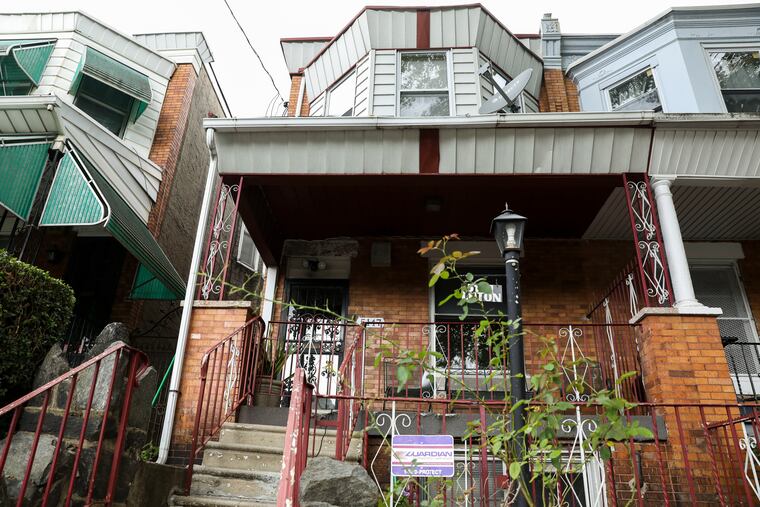Philly’s housing crisis is an education crisis | Opinion
A federal order announced last week may protect some people from evictions during the pandemic. But many families who will get to stay in their homes face significant health challenges.

As classes for students in the Philadelphia School District begin and the COVID-19 pandemic persists, home will be the primary classroom for students across the city.
A federal order announced last week may protect some people from evictions during the pandemic. But many families who will get to stay in their homes face significant health and safety challenges.
The unfortunate reality is that more than 121,000 families in Philadelphia live in homes deemed “inadequate” by the Department of Housing and Urban Development. Many in dire need of repair house school-age children, and will now serve as primary classrooms for virtual learning, schoolwork, homework, and projects.
» READ MORE: Philadelphia keeps clearing homeless encampments. But who is being helped?
Research has shown that the stability and adequacy of students’ homes have a direct correlation to their success in school. For example, high school students living in overcrowded homes have lower graduation rates. Studies show children in homes with lead paint or mold missing school at higher rates than their peers due to the related health implications, and absences are associated with lower standardized test scores.
These negative effects are evident without a pandemic. But this school year, unstable learning arrangements will exacerbate the inequalities that disadvantage many Philadelphia students. Without a physical classroom to go to each day, many students will feel the amplified effects of substandard housing on their health and their ability to succeed. Students living in overcrowded homes will struggle to keep up with their peers who have ample space to learn.
» READ MORE: A Philly military vet is using his home to help struggling veterans find peace and sanctuary
Though public health officials and the Philadelphia School District have worked hard to salvage a plan for our city’s students that prioritizes their health, well-being, and education, it’s essential to remember that, for many students, home may be as unsafe as a classroom right now.
The housing crisis in Philadelphia existed before the pandemic, and it will be amplified in a post-COVID world. But this moment brings forth an obligation to address the lack of adequate, affordable housing for our city’s residents, and represents a pivotal opportunity to bring solutions to the table.
At Habitat for Humanity Philadelphia, we know that housing directly disrupts other axes of poverty. For families, and especially students, having a home that is safe, warm, dry, and constant is the key to building strength, stability, and self-reliance. A student’s home should not be a barrier to their education. Adequate and affordable housing must be central to conversations about mitigating the pandemic and ensuring that students’ educational and social needs are met.
» READ MORE: Philadelphia keeps clearing homeless encampments. But who is being helped?
Our mission includes building new affordable housing, as well as making critical home repairs to Philadelphia’s aging housing stock. Through the Habitat for Humanity Home Repair Program, we work alongside Philadelphia homeowners with a focus on critical needs — such as heating, kitchen, and bathroom repairs, and accessibility modifications — that improve quality of life. We also work to keep homes warm, safe, and dry, and provide a stable environment for families with children while also allowing elderly homeowners to “age in place.” To date, Habitat has completed nearly 600 home repairs, often in homes of families with school-age children.
Still, we recognize that over 25% of Philadelphians live below the poverty line, and over half spend more than 30% of their monthly income on rent.
The housing crisis is real. While our goal is to scale our programs to meet Philadelphia’s growing housing needs, we know it will take all hands on deck to ensure everyone has a decent place to call home. We’ve seen how partnerships can make that possible. Through a collaborative effort with corporate partners on our Veteran Repair Corps Program, for example, we have completed over 100 home repair projects impacting 90 Philadelphia veterans.
» READ MORE: Repairing the city, one house at a time | Editorial
Taking such efforts to the next step requires making sure they can scale. Collaboration and sharing resources among corporations, foundations, government, and nonprofit partners who embrace their shared responsibility to address this crisis is essential.
The COVID-19 pandemic has brought the importance of home to the health and success of our city’s residents into clear focus. Now that we have seen the complexities of this need, we can’t look away.
As families across the city send their students virtually “off to school,” we challenge corporations, foundations, nonprofits, and individuals to view affordable housing as an obligation to our neighbors that we all must prioritize. Housing is education — especially now.
Corinne O’Connell is the chief executive officer of Habitat for Humanity Philadelphia, an independently chartered affiliate of Habitat for Humanity International (HFHI).